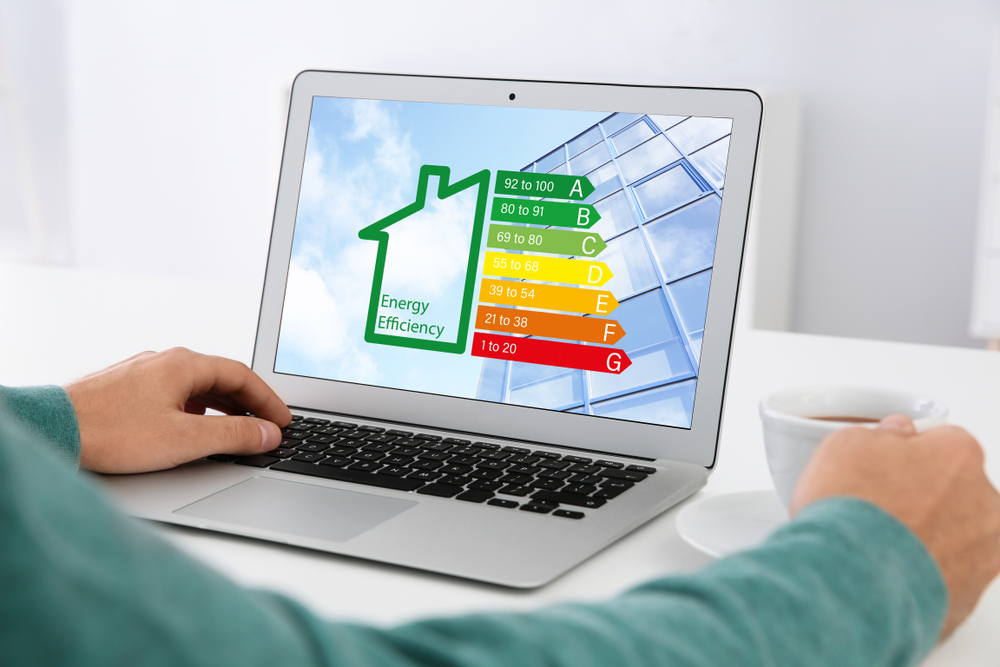These are the Energy-Efficiency Companies that Can Help Homeowners Save Energy
Energy-efficiency isn’t just a lifestyle, it’s also a livelihood. Eco-friendly energy options might be the future. Car manufacturers are increasing the electric models on the road, and more homes are becoming greener, too.
Homeowners who want to embrace extensive energy-saving options like solar panels or opt for smart home technology might check out what these energy-efficient companies offer:
- Johnson Controls
- Tesla
- Vivant
- Nest
Johnson Controls
Johnson Controls is focused on energy efficiency. The company offers many different products and services, including products that help power smart homes. Johnson Controls manufactures energy-efficient HVAC systems, smart thermostats and even smart systems to protect the home, too.
Tesla
While homeowners might know Tesla for the electric vehicles the company manufactures, Tesla isn’t just focused on automotive insights. Tesla also offers other energy-efficient innovations like solar panels and solar roofs for the home. In addition, Elon Musk also operates Starlink, a dish operated internet provider.
Vivant
The company offers security systems integrated with smart home automation. With the Vivint system, homeowners can control their home—including the temperature–with one app.
Nest
Nest is owned by Google, and homeowners might be quite familiar with the Nest product. Nest is a smart thermostat, and it was the first smart thermostat to receive an ENERGY STAR label. Now Nest also includes other smart home products.

Home Energy Audit Companies
Many other companies also help homeowners become more energy efficient. For homeowners who want to audit their energy use, home energy audit specialists can provide a thorough analysis of the home.
Home energy audit professionals can spot all the energy drains in the home and help homeowners remediate the issues. In addition, a home energy audit also can help homeowners understand other ways that they can reduce their energy consumption and become greener.
benefyd offers homeowners an app-based home energy audit option. Homeowners can download benefyd for free via Google Play or the App Store. benefyd will prompt homeowners to enter the energy use data for their home (homeowners should have utility bills on hand). In addition, the app also will ask homeowners to take a photo of every room in their home.
These home selfies combined with the utility data help the app understand the waste and energy consumption of the home. Using this data, the app will make suggestions to homeowners on how to lower their energy costs. benefyd also helps homeowners find rebates related to energy-efficient products, too.

How Homeowners Can Find the Best Energy-Efficient Products
Homeowners might be in need of replacing an appliance in their home. Switching to an energy-efficient appliance will not only help homeowners save money on electricity or other utility costs, but it also can help reduce the home’s carbon footprint, too.
Most energy-efficient appliances can be identified thanks to the ENERGY STAR label. However, there are many different energy-efficient products, and homeowners might be overwhelmed with their choices.
ENERGY STAR offers information on the most energy efficient appliances available. For example, homeowners can specifically search for the most energy-efficient refrigerator or furnace. Use ENERGY STAR’s Product Finder to find available energy-efficient products.
Homeowners who are looking for the least expensive energy-efficient appliances, though, might need to do their research on local home improvement stores. Some may offer promotions or sales. In addition, some energy-efficient appliances also could qualify for rebates to offset the initial investment cost. ENERGY STAR’s site also includes a Rebate Finder tool for homeowners.
Is a Smart Home More Energy Efficient?
Homeowners might gravitate towards a smart home setup. Is using the Internet of Things and embracing smart home technology a more energy -efficient option for homeowners? The benefit of smart home technology is that it allows homeowners to control the home remotely.
For example, homeowners can adjust the temperature of their home when they are on vacation. This remote access could allow for homeowners to make changes that lower energy costs. Smart home technology offers convenience and perhaps a sense of security, too.
When many devices and appliances are connected to a smart home system, the homeowner doesn’t have to worry that something was left turned on accidentally. The coffee maker can quickly be switched off. The air conditioner can be adjusted. Even the lights can be turned on or off.
Embracing energy efficiency might mean something different to every homeowner, though. Some may be focused on smart home technology, while others might want to decrease their energy consumption as much as possible. Homeowners could opt for more extensive energy-saving options like solar panels or even radiant heating.
While energy-efficiency could be a serious investment, sometimes it can also be simple changes, too. Homeowners on a limited budget could conduct a home energy audit and change up their daily habits to embrace a more energy-efficient lifestyle. Even small changes like adjusting the thermostat and opening up the drapes for natural light can save energy.


